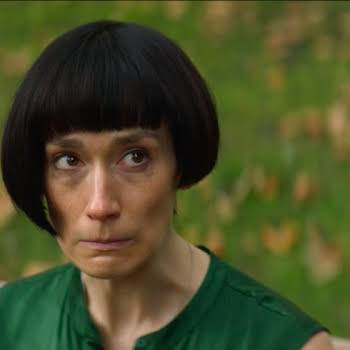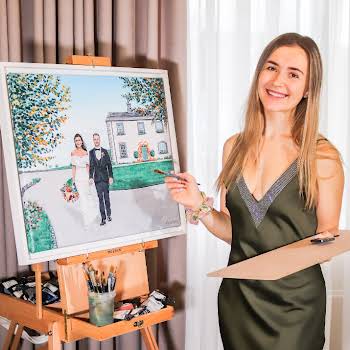Why you should bother with a non-religious marriage course even if you’re not having a religious wedding
By Grace McGettigan
14th Mar 2018
14th Mar 2018
While many couples dream of a conventional Catholic wedding, they can’t walk down the aisle unless they’ve attended a pre-marital course first. According to a study published in the Journal of Family Psychology, couples who attend these courses enjoy happier marriages than those who don’t. They’re also less likely to separate or get divorced. Considering the fact that over 3,000 Irish couples file for divorce every year, a marriage prep course (whether religious or otherwise) seems to be one worth taking.
If you’re recently engaged and planning a Catholic wedding, the officiating priest must ensure that you and your partner are amply prepared for married life. He will recommend a course to you, usually located in a nearby hotel function room. It will cover everything from communication within your relationship to intimacy and family planning. Ann-Marie, who married her long-time love Kevin in 2014, says, “My now-husband and I attended a priest-led course with about 20 other couples. It was a daylong thing organised by Together.ie. We didn’t have to take notes or anything – there was a bigger emphasis on conversation – but they had additional information on their website if we needed. Tea, coffee and pastries were also provided.”
“I would have preferred a non-religious course as I’m not an avid mass-goer,” she says, “but there were only religious options available to us at the time.”
That being said, Ann-Marie notes, “While there was a priest there, it wasn’t overly religious. There was only one guided prayer and meditation on the day. Surprisingly, I loved the course. It made us ask serious questions we hadn’t asked before, and we met people in similar situations. The best part was when they brought in a couple who had been married but separated after going through fertility issues. They were practical and basically said ‘don’t make the same mistakes we made’. I liked being given marriage advice from people who’ve been through it, rather than just the priest.”
Non-religious marriage prep courses
More Irish couples are swapping religious weddings for civil ceremonies than ever before. The Central Statistics Office reported that over 40% of all marriages in 2020 were non-religious. The 2016 census showed a 6% drop in Irish Roman Catholics since 2011, while almost 500,000 people said they’d no religion at all. In these instances, pre-marital courses aren’t mandatory, though they are most certainly recommended.
Psychologist Anna Nauka at the MyMind Centre for Mental Wellbeing says, “Getting married is one of the most important steps we make during our adult life. Building a union with another person and committing to each other is a tremendous decision – one we very often make without having a chance to discuss our future married lives, values, or beliefs.”
She and her colleagues run non-religious marriage prep courses so that everyone can access professional advice before tying the knot. Psychologist Karolina Jurasik, also from MyMind, adds, “We believe that every couple can benefit from a course or relationship counseling, regardless of religion or sexual orientation. It’s our mission to break down barriers so that all couples can access support when they need it. Ireland has changed and progressed in many wonderful ways in recent years, and it’s home to people from all over the world with different cultures, beliefs, and backgrounds. The support and guidance we offer simply reflects that diversity.”
So what’s involved? Just like the Catholic course, the main focus is on communication between partners. It aims to open conversations that people may not have been considered before – but it’s not therapy and shouldn’t be confused as such. “Our focus is on enhancing a couple’s friendship, closeness and intimacy,” Karolina says. “We also discuss conflict management, as well as expectations around the subjects of family, fertility, and parenting. It’s important to remember that this is a course where we focus on strengths and development, rather than issues and therapeutic interventions.”
The main difference between the Catholic and non-religious courses is that one-on-one sessions are available in the non-religious setting. “The couple can have individual meetings with the professional over the space of a few weeks if that’s more comfortable. For people who prefer a group-learning setting or have limited time, we do a one-day workshop that six couples can attend,” Karolina explains, while Anna adds, “Naturally, discussing topics connected with our personal life can be difficult and sometimes uncomfortable. As therapists, we try to create a nonjudgmental, non-threatening space for couples to feel safe to open up. Of course, both partners can choose how deeply they want to discuss certain topics.”
For more information, visit mymind.org and together.ie






















